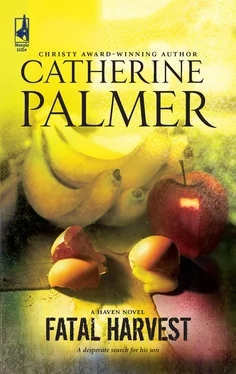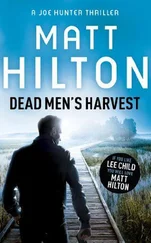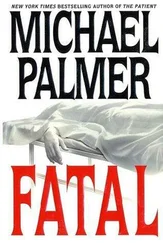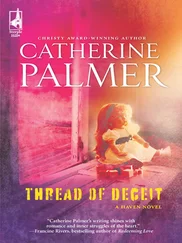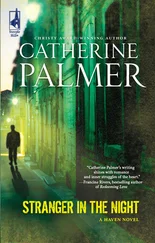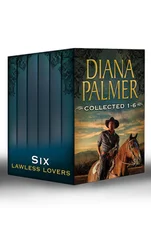Cole grabbed the phone book from the counter and leafed through the Hope directory. Billy handed him the cell phone, and he dialed.
“Banyon,” a voice said on the other end.
“Jim, this is Cole Strong—Matt’s dad.”
“Oh. Uh-huh.”
“Listen, Matt didn’t come home from school today, and I was wondering if he might be out there visiting with you.”
“No.” Banyon breathed heavily into the phone. “Uh, no. Tell him not to come out. Not to do that.”
Cole paused, concern working its way up his spine. “You okay, Jim?”
“Uh.” There was another pause and more labored breathing. “No. Not…not really.”
“Is there anything I can do for you? Do you need a doctor?”
Another silence. “Just…uh…tell Matt not to come. Definitely not to—”
The phone went dead. Cole stared at Billy.
“What’s with Mr. Banyon?” the boy asked. “Is he sick?”
“I’m not sure.” Cole tapped the phone book, weighing the idea of asking the sheriff to look in on the man. Banyon was in his sixties, but he appeared to be in robust health—not the type to have a heart attack or a stroke. Maybe he was struggling with his farm. On retiring from a white-collar job at Agrimax, Jim Banyon had bought land in New Mexico and was trying to grow cotton on it. Many local farmers had gone belly-up in recent years, and Cole had not predicted great success for his new neighbor. The depression and despair these men felt at the loss of their land and livelihood had led some to alcohol and others to the brink of suicide.
Uneasy over his son’s whereabouts, Cole found his thoughts drawn to his work. It was the one thing that had seen him through his wife’s illness and death, the growing estrangement from Matt, and the surge of emotion he had felt on meeting Penny.
“Well, I’m gonna head out and look for Matt,” Billy said, grabbing the last tamale from the plate. “He might have gone to the library and forgotten what time it was.”
“That would be like Matt.”
“Yeah.” The boy picked up an apple and dropped it into the pocket of his baggy jeans. “If he’s not there, I guess I’ll check the computer store. He’s been eyeing this tiny USB key he wants to buy. Sometimes he just goes over there and stares at it. Or maybe—”
“Wait. A US…B…what?”
“It’s a gizmo that stores information.” He paused. “Mr. Strong, Matt’s the one who can tell you about computer stuff. Don’t you ever ask?”
“I’m asking now. I’m asking you.”
“A USB key is a piece of computer hardware, but it’s cool because it’s so tiny you can hang it on a key chain. Like the size of a pack of gum or something.” He held his thumb and forefinger a couple of inches apart. “You plug it into your computer’s USB port—” Billy paused, regarded the obviously inept adult before him, and then rolled his eyes “—Universal Serial Bus. A USB port uses hubs to let you attach stuff like printers, digital cameras, game pads, joysticks, keyboards, and mice to your computer. And USB keys.”
“All right,” Cole said, trying to envision these electronic gadgets that were so commonplace to Matt and Billy.
“So you plug the flash drive, or USB key it’s called, into your USB port, and then you can load tons of data onto it—two or three gigabytes of information. Matt wants it because he’s got so many programs. I think he’s going to ask for it for his birthday.”
“I see.”
“Maybe Matt’s over at the school talking to Miss Pruitt about his paper. He does that a lot. And I guess I could drive out to Hope and see what’s up with Mr. Banyon. Or you could go.”
Cole considered this option. Surely Matt hadn’t gone far. He’d be home soon. “I’d better get back to that field,” he said. “Call me when you find him, okay, Billy?”
Resentment flickered in the boy’s eyes. “Mr. Strong, you don’t even know where your phone is.”
As Billy stalked out of the kitchen, letting the screen door slam behind him, Cole sucked down a deep breath. He thought of the field, half-plowed. The ranch hands waiting for his return. The cows ready to calve. The seed that needed planting. The afternoon sun dipping toward the horizon.
Grabbing his Stetson, he headed out the door. “Billy, wait up!” he shouted. The boy braked his pickup.
“I’ll check the library,” Cole said. “You go to the computer store.”
Billy grinned. “I’ll meet you at Miss Pruitt’s classroom in an hour—207 in the main building. She’ll be there—she always works late.”
Cole climbed into the car he kept for town trips. “An hour,” he muttered. “That shoots this day.”
“Please feed me.” The small boy, his dirty face streaked with tears, held up a bowl made from an empty gourd. “Give me food, sir.”
Josiah Karume could not resist laying his hand on the child’s tiny head. How old would this boy be, he wondered. Five…or ten? Malnutrition had so withered and stunted his body it was impossible to tell. His dark skin stretched over the bones of his skull, and his parched lips—ringed with flies—were pulled back from his small white teeth. With a head of sparse orange hair and a swollen abdomen, the boy looked like so many other walking skeletons in the long line of refugees that snaked out behind him.
As Josiah scooped up a dollop of cornmeal mush fortified with protein powder and vitamins, someone tapped him on the shoulder. He poured the mush into the boy’s bowl before turning to see who wanted him now.
“A phone call for you, Dr. Karume,” his aide said.
Josiah handed his ladle to the man and hurried across the dry, sandy ground toward the makeshift Somalian headquarters of the International Federation for Environmental and Economic Development. As chairman-elect of the organization, he was forced to spend most of his time dealing with mountains of red tape in the African bureau of I-FEED in Khartoum, Sudan. But Josiah relished the rare opportunity to visit the camps where his hard work actually paid off.
“Karume here,” he said into the phone that sat on a rickety card table inside the office.
“Josiah, this is Vince Grant.”
“Vince! How good of you to phone. What news do you have for me today?”
“I’m just returning your call from Tuesday. Wanted you to know I’m still working on transportation. We’ve got the cornmeal at our Kansas facility, but the logistics are sticky.”
Josiah’s heartbeat faltered. “The paperwork in Khartoum is complete, Vince. I’m certain I shall have no trouble with the Sudanese authorities.”
“I hear you, Josiah, but I just can’t move the product without having all my ducks in a row.”
“Ducks?” Though he’d obtained his undergraduate degree in London and had completed his doctoral work in Texas, Josiah still found American idioms confusing.
“I can’t do anything until I’ve got the official papers in my hand,” Grant clarified. “You understand the risk I’m taking with my stockholders. If I move this cornmeal, and it gets stuck in Khartoum…”
“Yes, yes. Of course I understand. Let’s see, today is Thursday. I leave tomorrow morning for a conference in Paris, but I shall do all in my power to see that you receive official copies of the documents by the first of next week.”
“Great. That’s terrific. Well, I’ve got a meeting here in about five minutes. So how’s the family?”
“They are doing well, thank you. And yours?” Josiah stared out the window at the blowing sand. As the sun beat down on the refugees, a young woman suddenly let out a wail and staggered out of line. Falling to her knees, she clasped her baby to her breast.
“Well, both girls are off at college, and my son’s polo team won—”
Читать дальше
